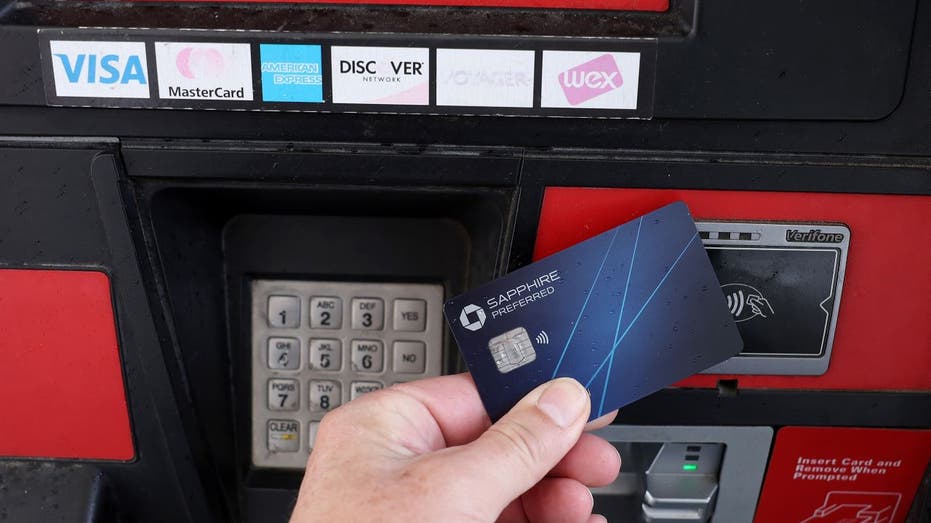Americans’ credit card debt continues to climb, hitting a fresh record at the end of September, according to a new report from the New York Federal Reserve.
Total credit card debt rose to $1.17 trillion during the third quarter, an increase of $24 billion from the previous quarter, according to the report. It marks the highest level on record in Fed data dating back to 2003.
The report showed total household debt also climbed to a new high of $17.94 trillion, along with balances on mortgages ($12.59 trillion), auto loans ($1.64 trillion) and student loan balances ($1.61 trillion).
INFLATION RISES 2.6% IN OCTOBER, IN LINE WITH EXPECTATIONS
“Although household balances continue to rise in nominal terms, growth in income has outpaced debt,” said Donghoon Lee, Economic Research Advisor at the New York Fed. “Still, elevated delinquency rates reveal stress for many households, even amid some moderation in delinquency trends this quarter.”

While still above pre-pandemic highs, credit card delinquencies did ease some last quarter to 8.8%, down from 9.1% from the previous quarter. Delinquencies for auto loans and mortgages both worsened slightly, rising by 0.2 and 0.3 percentage points respectively.
FED SHOULD BE BLAMED FOR CREATING THE HIGHEST INFLATION IN 40 YEARS: BRIAN WESBURY
In a call discussing the report following its release, New York Fed researchers discussed the growth in debt balances across the board, the persistent and “concerning” growth in auto loan and credit card delinquencies, and how stresses and high delinquency rates are concentrated among younger borrowers.

“We’ve seen notably elevated flows into delinquency, particularly for credit cards as well as auto loans during the past few years,” one researcher said. “This is something that we have been pointing to as a reason for concern — something to keep an eye on.”
They pointed to the rise in payments consumers are making on credit cards and auto loans, which is attributed partly to inflation and also because of higher interest rates.
Read the full article here
















